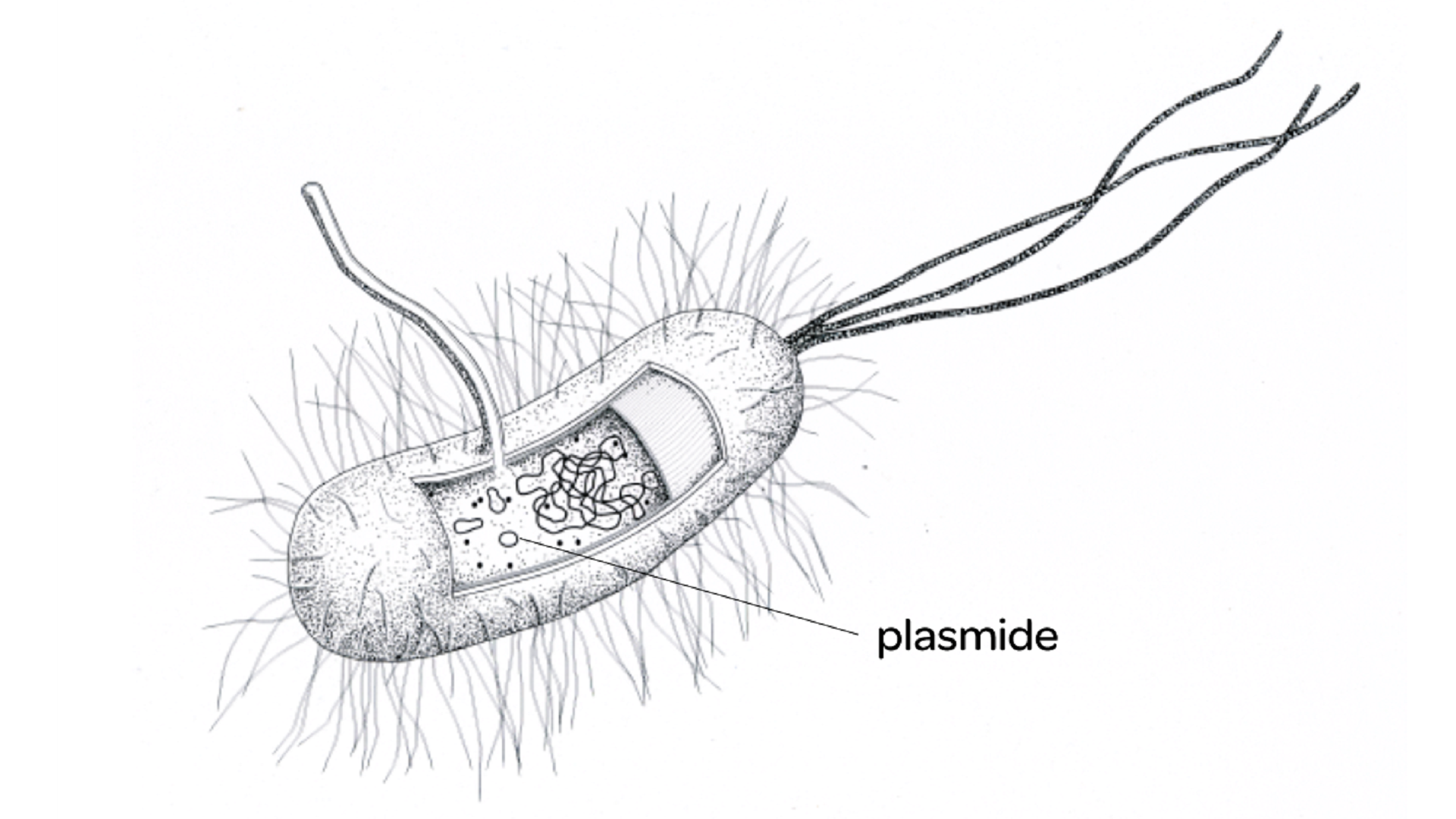Many bacteria are full of plasmids. These small pieces of DNA contain all kinds of useful properties that bacteria can exchange among themselves. But we also make good use of it, for example to make medicines.
Many bacteria are full of plasmids. These small pieces of DNA contain all kinds of useful properties that bacteria can exchange among themselves. But we also make good use of it, for example to make medicines.
Loose in the cell
In our cells, all DNA is safely and neatly stored in the cell nucleus. But many unicellular organisms, such as bacteria, do not have a nucleus which means that their genetic material is loose in the cytoplasm. Bacteria have a single chromosome. But in addition, they have much more DNA in the form of plasmids. A plasmid is a circular piece of DNA. Depending on the circumstances, there may be thousands of plasmids in a cell. The length of the plasmids can also vary enormously from 1,000 to more than 200,000 base pairs.
Useful properties
Plasmids often contain useful properties for the organism, such as resistance to antibiotics. Bacteria can also exchange these plasmids with each other via conjugation. Through this form of horizontal gene transfer, the bacteria can even exchange useful properties with other species.
Medicines from plasmids
In biotechnology, artificial plasmids are often used for genetic modifications. By precisely assembling plasmids with the desired properties, researchers can have a cell make a certain substance or show a specific behaviour. For example, plasmids are used to make yeast or bacteria produce large amounts of insulin.

